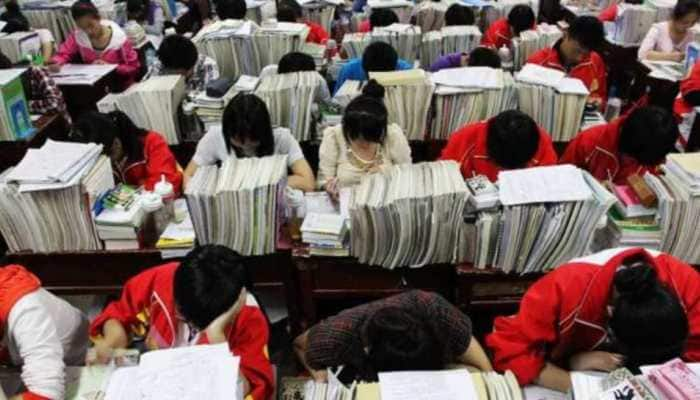'Woefully inadequate': After NGT, Delhi High Court criticises pollution control measures
The Delhi High Court on Thursday termed as "woefully inadequate" the efforts made by the Centre as well as the authorities in the national capital to mitigate the poor air quality here.
Trending Photos
) File photo
File photo New Delhi: The Delhi High Court on Thursday termed as "woefully inadequate" the efforts made by the Centre as well as the authorities in the national capital to mitigate the poor air quality here.
The observation by a bench of justices S Ravindra Bhat and Sanjeev Sachdeva came as none of the authorities, including the city municipal bodies, were able to show they had complied with the court's urgent directions of last week to bring down the air pollution.
"Steps taken are woefully inadequate," the bench observed even as the municipal corporations and the Delhi government assured the court that they sprinkled water on the roads as ordered by it to reduce dust generation.
The court also put tough questions to the Delhi Pollution Control Committee (DPCC), represented by advocate Sanjeev Ralli, on the number of prosecutions it has launched for violation of construction norms, the number of teams it has for inspection and whether any penalties was provided for under the Environment Protection Act.
"Where is the will (to take action)?" it asked the DPCC.
The pollution control committee told the bench that fines amounting to Rs 50,000 were levied for every violation of construction norms in the city and 25 per cent of the amount collected was remitted to the Central Pollution Control Board (CPCB) for utilisation.
The DPCC said the fines were levied on the directions of the National Green Tribunal (NGT) which had also ordered that remaining 75 per cent of the amounts collected be spent on mitigating air pollution in the city.
The DPCC also informed the court that the quadrupling of parking fare in Delhi has been done away with.
Amicus curiae and senior advocate Kailash Vasdev, assisting the court, submitted that apart from the fines, over Rs 700 crore has been collected as green cess for bringing to Delhi cars of 2000 cc or larger engine capacity.
The bench, thereafter, directed the authorities, including the CPCB and DPCC, to inform it about the proposed projects on which money would be spent to mitigate air pollution in Delhi.
"We want to know what is being done with the funds," it said.
It told the Delhi government to consider applying to the Centre under the Compensatory Afforestation Fund Management and Planning Authority (CAMPA) Act for release of additional funds for utilisation under this law.
The local bodies and the AAP government were directed by the court "to indicate the most appropriate methods to ensure a coordinated approach to deal with polluting construction sites and effective implementation of the Air Act, the Environment Protection Act" and the rules and guidelines framed under them.
The authorities were also asked to provide the details before November 29, the next date of hearing.
During the nearly two-hour long hearing, Vasdev told the bench that there has been no compliance of its November 9 order.
On November 9, the high court had issued a slew of directions to improve air quality, including watering of the roads to minimise dust, and had also suggested exploring the option of 'cloud seeding" in the meeting between the Centre and the state governments of Delhi, Punjab, Haryana, Uttar Pradesh and Rajasthan.
The Centre today placed before the court the minutes of the meeting held on November 10.
Referring to the report, the amicus said that the Centre and state governments were looking at "cost effectiveness" of cloud seeding when the point of cost should not be a concern for them where health of the people is concerned.
He also said that there was no reference in the report on how the Centre and states planned to prevent stubble burning in future.
The report of the meeting also said that there is not sufficient scientific evidence to show that cloud seeding was an effective technology.
Delhi government's additional standing counsel Naushad Ahmed Khan told the bench that its hospitals, dispensaries and mohalla clinics were ready deal with any health issues posed by the poor air quality.
The court was hearing a PIL initiated by it to curb air pollution in the national capital. It has been issuing directions time-to-time in this regard.
Stay informed on all the latest news, real-time breaking news updates, and follow all the important headlines in india news and world News on Zee News.
Live Tv







)
)
)
)
)
)
)
)
)
)
